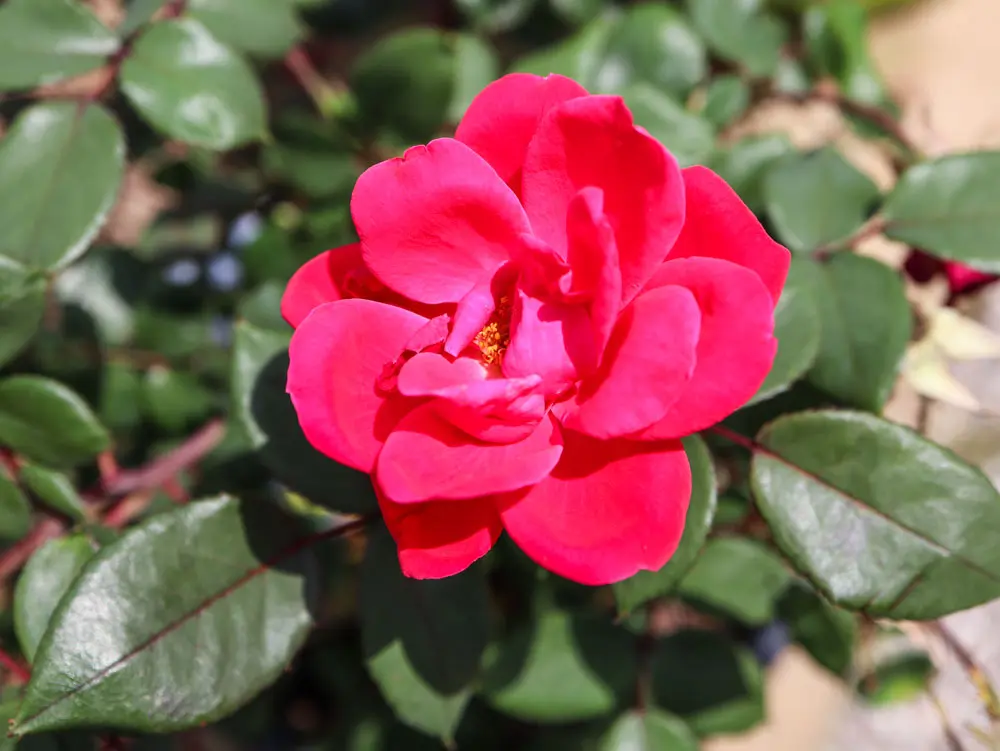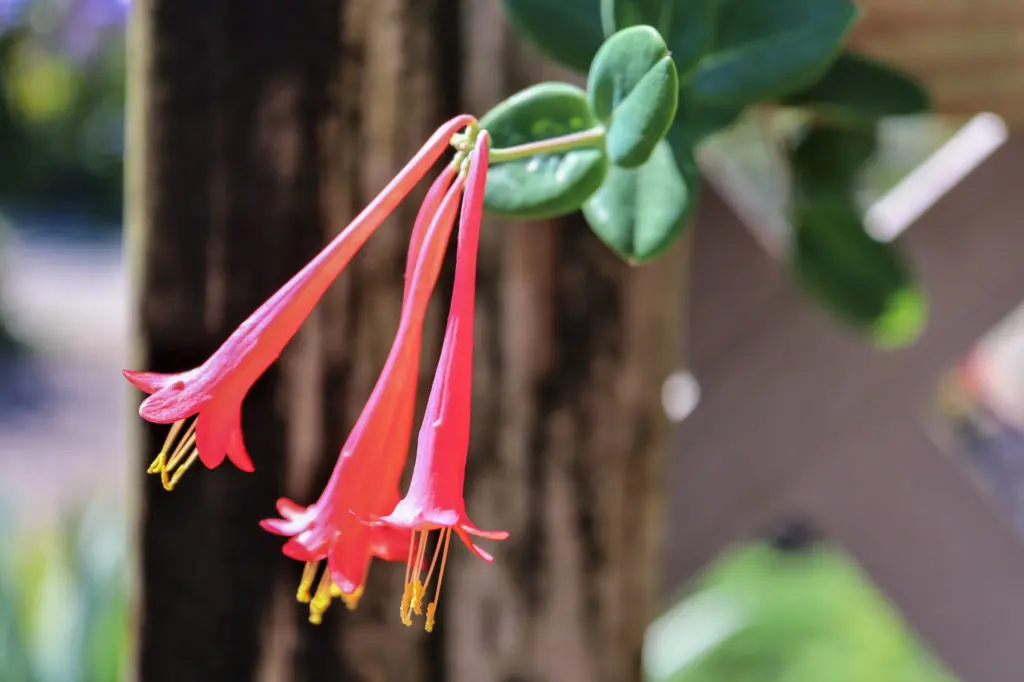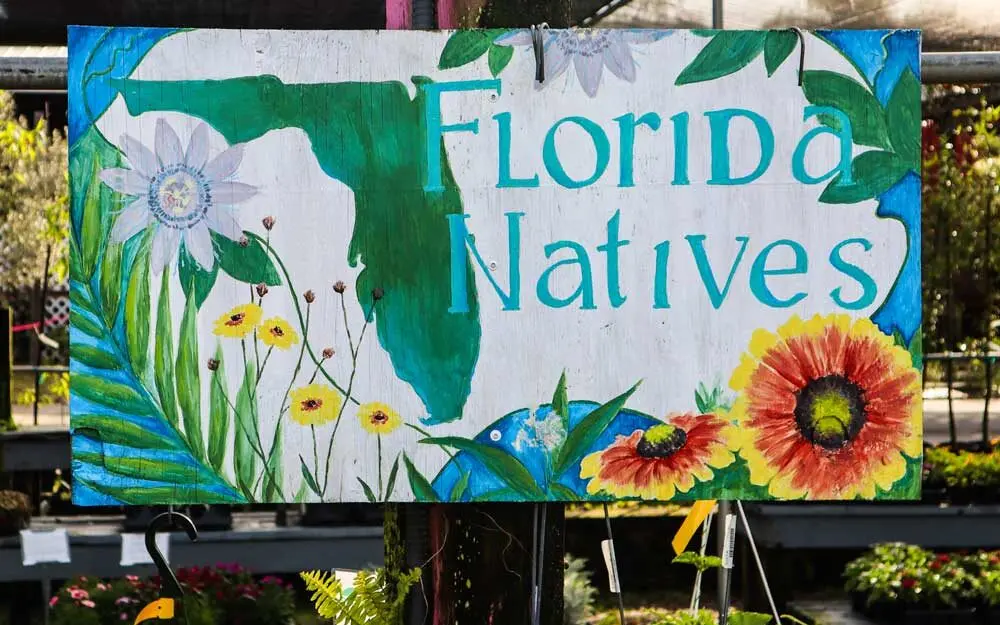By Amanda Rose Newton
June’s birth flowers, the rose and the honeysuckle, have long been cherished for their beauty, fragrance, and symbolic meanings. In this post, we delve into the history behind these beloved blooms, explore Florida-friendly alternatives, provide care tips, and discuss the difference between native and invasive honeysuckle species.
The History Behind June’s Birth Flowers
Roses
Roses have been associated with love, honor, faith, beauty, and passion for centuries.
The ancient Greeks and Romans linked roses to their goddesses of love, Aphrodite and Venus, respectively. Throughout history, roses have symbolized various sentiments and have been cultivated for their beauty and medicinal properties. To date, there are over 150 wild species of roses and an unbelievable 30,000 cultivated varieties! There absolutely is a rose for everyone, many named after your favorite celebrities. I personally enjoy the Neil Diamond.
Honeysuckle
Honeysuckle symbolizes devoted affection and the bonds of love. In Victorian times, giving a bouquet of honeysuckle signified the strong and loving bond between the giver and the recipient. Its sweet fragrance and ability to thrive in various conditions have made it a popular choice in gardens around the world.
Florida-Friendly Alternatives
Given Florida’s hot and humid climate, traditional roses and honeysuckle can sometimes struggle. Here are some alternatives that thrive in Florida’s unique environment.
Florida-Friendly Alternative to Roses: Knock Out Roses
Knock Out Roses, created by Star Roses and Plants in the 1980’s, are renowned for their resilience and low maintenance.

The knock outs are a cross between a shrub rose and a Floribunda rose. They are disease-resistant and can handle Florida’s challenging climate with ease. While you can grow pretty much any rose you wish in Florida, these are by far the easiest and most forgiving.
Care Tips for Knock Out Roses in Florida:
Location: Choose a spot that receives at least six hours of direct sunlight daily.
Soil: Use well-drained soil enriched with organic matter.
Watering: Water deeply but infrequently to encourage deep root growth. Early morning watering helps prevent fungal diseases.
Fertilization: Apply a balanced fertilizer in early spring and again in mid-summer.
Pruning: Prune in late winter or early spring to shape the plant and remove dead or diseased wood.
Florida-Friendly Alternative to Honeysuckle: Coral Honeysuckle (Lonicera sempervirens)
Coral Honeysuckle is a native honeysuckle species that thrives in Florida. Unlike some invasive varieties, it is well-behaved and supports local wildlife, especially hummingbirds and their mimic, hummingbird moths. It also happens to be gorgeous!
Care Tips for Coral Honeysuckle in Florida:
Location: Plant in full sun to partial shade.
Soil: Prefers well-drained, sandy soil.
Watering: Water regularly during the first growing season to establish a deep root system. Once established, it is drought-tolerant.
Fertilization: Apply a slow-release fertilizer in spring.
Pruning: Prune after flowering to maintain shape and encourage new growth.
Native vs. Invasive Honeysuckle
Native Honeysuckle
Coral Honeysuckle is native to Florida and the southeastern United States. It provides nectar for hummingbirds and butterflies, making it a valuable addition to a wildlife-friendly garden.

Invasive Honeysuckle
Japanese Honeysuckle (Lonicera japonica) is an invasive species that can quickly overrun native plants. It is aggressive and can form dense thickets, choking out native vegetation and disrupting local ecosystems.
Why Choose Native?
Ecological Balance: Native plants support local wildlife and help maintain biodiversity.
Low Maintenance: Native species are adapted to the local climate and soil, requiring less water, fertilizer, and pest control.
Preventing Spread: Planting native species helps prevent the spread of invasive plants, which can be difficult and costly to control.
While roses and honeysuckle are beautiful choices for June, selecting Florida-friendly alternatives like Knock Out Roses and Coral Honeysuckle can ensure a thriving, low-maintenance garden that supports local wildlife and preserves the natural ecosystem. Embrace these alternatives and enjoy a garden that flourishes in Florida’s unique climate.



